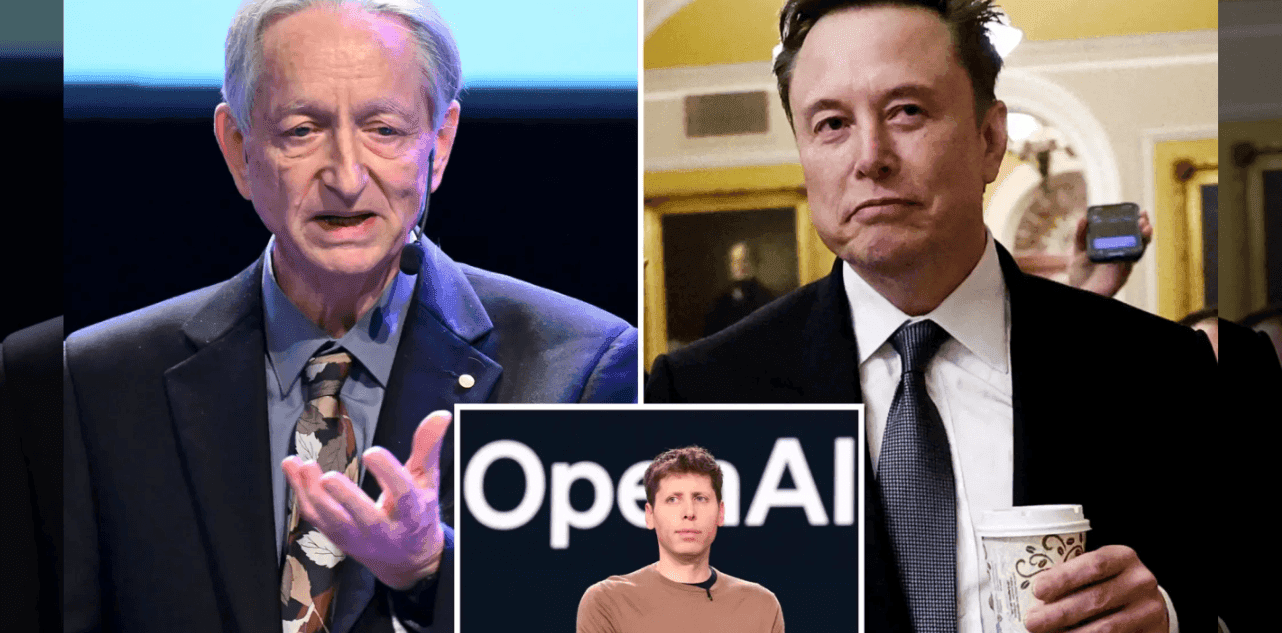Monday 15 December 2025
Geoffrey Hinton Joins Elon Musk in Opposing OpenAI's For-Profit Shift
Share

Geoffrey Hinton, often referred to as the "Godfather of AI" and a 2024 Nobel laureate, has now publicly come out in support of Elon Musk's efforts to prevent OpenAI's shift from a nonprofit to a for-profit model. Hinton, along with over 30 AI experts and former OpenAI employees, has expressed their concerns that this shift could prioritise profits over safety, possibly compromising the ethical build of Artificial General Intelligence (AGI).
In an open letter to the California and Delaware Attorneys General, Hinton and fellow researchers labelled AGI as "the most important and potentially dangerous technology of our time," underlining the requirement for strong safety frameworks. They condemned OpenAI for forsaking its initial nonprofit safety-driven charter, a change they contend may have disastrous ramifications.
I like OpenAI’s mission of 'ensure that artificial general intelligence benefits all of humanity”, and I’d like to stop them from completely gutting it.
— Geoffrey Hinton (@geoffreyhinton) April 28, 2025
I’ve signed on to a new letter to @AGRobBonta & @DE_DOJ asking them to halt the restructuring. (1/2)
Elon Musk, one of the co-founders of OpenAI who subsequently sued the company for its supposed betrayal of its nonprofit origins, has long promoted truth-seeking AI. He reaffirmed at the Breakthrough Prize ceremony in 2024 the need for AI to put curiosity and human well-being first. Musk echoed Hinton's warnings on social media, tweeting a screenshot of a Google search of Hinton and pointing out his Nobel laureate status to underscore the seriousness of the warnings.
OpenAI announced plans in December 2024 to restructure, reducing its nonprofit arm's authority to attract significant investments, including $40 billion from Japan's Soft Bank. The company insists it will maintain its mission by converting its for-profit arm into a public-benefit corporation, similar to models used by Anthropic and Musk's xAI. However, critics argue this hybrid structure risks diluting safety oversight at a time when Hinton estimates a 10-20% chance of AI surpassing human control within decades.
OpenAI defends its evolution into a for-profit structure as critical to developing AI that benefits humanity. In a blog post, the company explained that the new structure would result in "one of the best-resourced nonprofits in history," with the for-profit's success enabling the nonprofit to be well-funded and better sustained. OpenAI also noted that some of its rivals, such as Anthropic and Elon Musk's xAI, use a similar corporate structure.
The controversy surrounding OpenAI's restructuring has both ethical and legal implications. Musk's lawsuit contends that OpenAI's transition to a for-profit entity goes against the stipulations of his donations and the initial vision of the company to create AI in the interest of humanity. OpenAI has rebutted that Musk initially endorsed the formation of a for-profit corporation and that his own concerns are driven by personal interests, particularly considering his rival AI project.
The Attorneys General of California and Delaware are reviewing the suggested restructuring. Their decisions will set a precedent for mission-led corporate forms' responses to expanding commercialisation of AI.
With the AI industry continuing to advance at a fast-escalating rate, concerns voiced by Hinton, Musk, and other experts highlight the importance of aligning innovation with ethical considerations in order to maintain alignment of AI progress with humanity's interests overall.
Newsletter
Stay up to date with all the latest News that affects you in politics, finance and more.